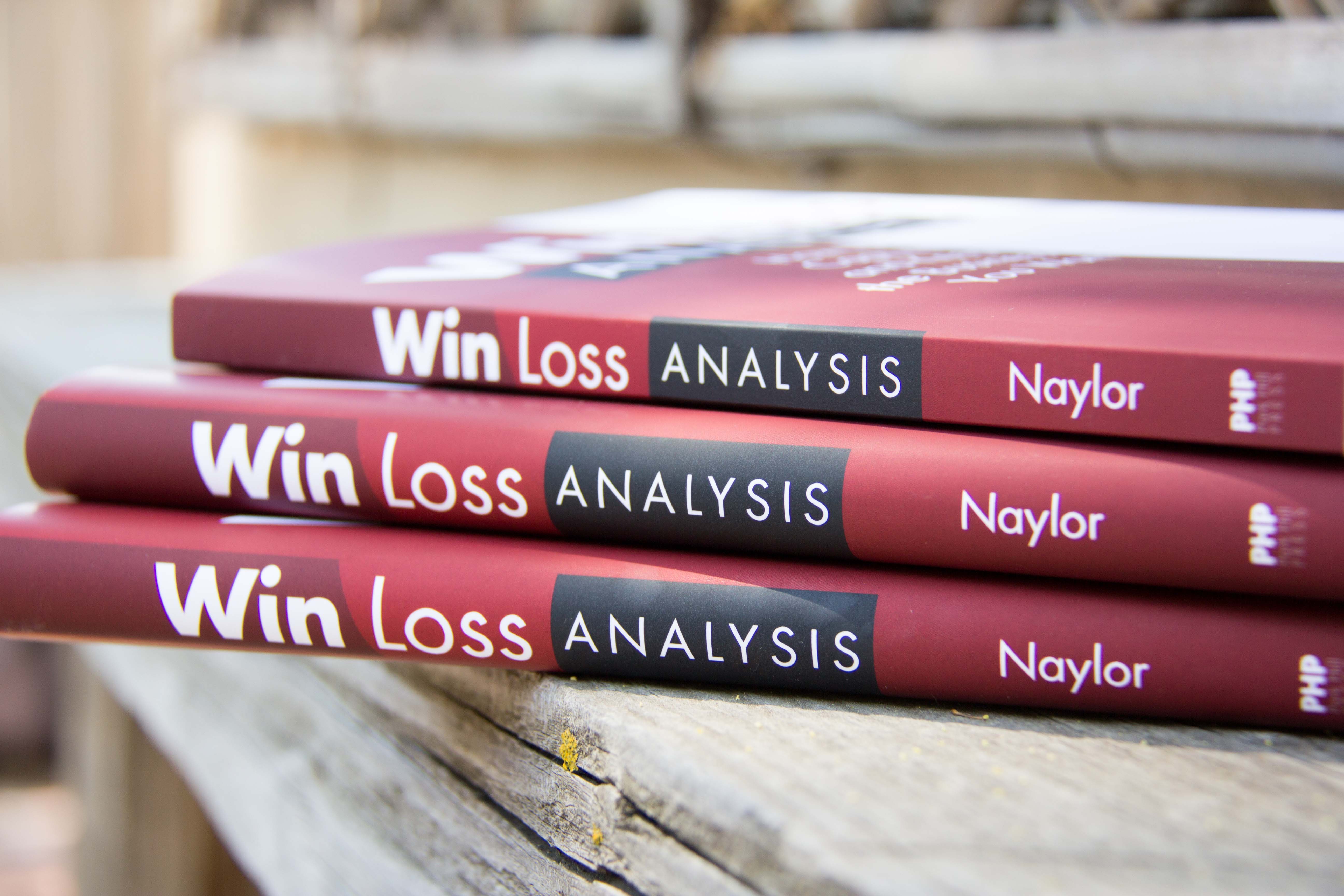Recently I was interviewed about Win Loss analysis. This is what happens when you write a book. I thought you might be interested.

Question: Why did you write this book, Win/Loss Analysis?
Ellen: There wasn’t a book written on Win/Loss analysis and every time I complete a Win/Loss project, and my client makes the changes that I recommend, they make more money. I want more people to do this work so they can improve their sales retention and win rates.
Question: So what exactly is Win/Loss Analysis? How does it work?
Ellen: You interview your customers and those who chose a competitor about two or three months after the sale. That way they know you’re not selling to them. You’re listening. You want to learn why and how they made their buying decision, and how things might have changed during the buying process. Customers are very good about telling you what’s on their mind once they notice you’re actively listening.
Question: What is the most compelling reason for people to do Win/Loss analysis?
Ellen: The most compelling reason is that those companies who have a formal Win/Loss program can improve win rates 15 – 30%, if they act on the changes that are recommended.
Question: What size companies do Win/Loss analysis? Is there a certain threshold of revenue, employees or customers you need to hit before it’s relevant?
Ellen: It’s relevant even for a one person shop. Case in point: a gentleman who read my book runs a photography and video business. When he asked a loss customer “What did I do wrong? How can I improve?” and other questions, they were so impressed with his professionalism that he got three referrals. Of course, it’s more involved at a large company since you have politics, culture and so much more to deal with.
Question: If Win/Loss is so successful, why don’t more companies do it?
Ellen: The biggest reason is arrogance. Some companies don’t know about Win/Loss analysis. Others are uncomfortable with it since their sales force feels like they’re being picked on. Actually the sales force is a major beneficiary of Win/Loss. And besides they aren’t the only ones being assessed. We look at marketing, product development, R&D, and the company’s reputation.
Question: What skills does it take to be successful at Win/Loss analysis?
Ellen: Organization and being a good listener. Interviewing requires you to be a good listener. You need to be very organized before you conduct interviews. It’s a people business, and you have a limited time to conduct each interview.
Question: Is there a bigger payoff in focusing on wins or losses?
Ellen: I think it’s best to focus on both since they share different things. Wins will share what you’re doing right, but they’ll also tell you what the competition is saying. Often they’ll tell you more than losses will. It’s only human nature since they decided on your company’s solution. Wins will also tell you about your company’s implementation, customer service, etc.
Losses will tell you how you’re perceived in the marketplace, and you’ll often find out that you’re perceived differently than you thought you were. People buy based on perception.
Question: Is Win/Loss a tactical advantage for companies or do they also use it for some strategic reasons?
Ellen: Most of it is tactical in that sales and marketing benefit most immediately. Product development also can benefit. For example, sometimes you find out about unintended uses of your product or service and you can go after a new market segment. We used it at Bell Atlantic (Verizon subsidiary) many years ago to affect a strategic acquisition.
Question: What are the pros and cons of outsourcing Win/Loss?
Ellen: The biggest pro is that customers and those who chose a competitor will tell a Third Party more than they tell company employees. They don’t want to share bad news with the company. Consultants do this for a living and have more practice conducting Win/Loss interviews.
The major con is cost. Also, nobody know your business like you do. If your employees conduct the interviews, there is less cash outlay for a Third Party. However, this will take your employee’s time away from other projects.
Question: Are there other tips you would like to share for someone starting a Win/Loss program?
Ellen: Have it be a collaborative effort with your sales force. Sales is out there in real-time all the time. Get Sales’ input on what would be good questions to ask, and which customers might be most apt to share. However, don’t let them conduct the interviews. Make sure you act on the changes from Win/Loss analysis. If not, you have wasted your time.
Question: Who do you target your book to? To those who would hire you or those who want to conduct their own Win/Loss?
Ellen: To both, and also to consultants who want to add Win/Loss analysis to their portfolio of services.
The book is available as a hardcover, paperback or e-book on Amazon. For a personally signed copy or volume discount (>5), please contact Ellen directly via phone/text at 720-480-9499 or email: Ellen@EllenNaylor.com. Read more about Win/Loss analysis.
Receive our 6-page Win/Loss Cheat Sheets
Learn more about competitive intelligence
Win/Loss Analysis book; Amazon link to Win/Loss Analysis book
Join our mailing list and get our cheat sheets on “How to Build a World Class Win/Loss Program.”
